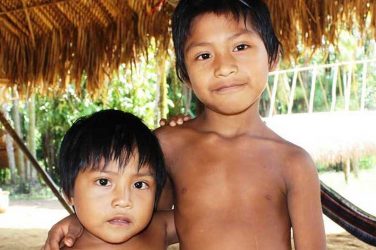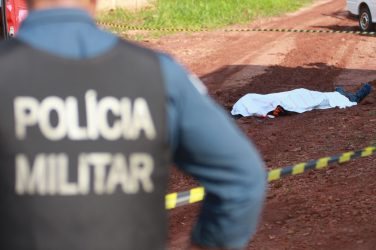 Brazil’s National Food Security and Nutrition (CONSEA) submitted recommendations to several federal and state agencies in an attempt to urgently resolve part of the problems faced by indigenous people of Mato Grosso do Sul state, living in different municipalities on the border of Paraguay.
Brazil’s National Food Security and Nutrition (CONSEA) submitted recommendations to several federal and state agencies in an attempt to urgently resolve part of the problems faced by indigenous people of Mato Grosso do Sul state, living in different municipalities on the border of Paraguay.
Among the recommendations, they asked officials for fulfilling basic needs for the survival of indigenous communities, such as food baskets, drinking water, in addition to children’s school enrollment.
During a visit to the region, from August 29 to September 1, CONSEA members and state prosecutors have seen a large number of people in penury, hunger, and extreme poverty.
“From a nutritional point of view, there are visible cases of malnutrition. There are low birthweight babies, many debilitated elderly,” reported Mato Grosso do Sul CONSEA’s President Vânia Almeida, who went on the visit to the region.

Communities facing the most serious difficulties are located in areas in land disputes between landowners and indigenous people, as the conflict that killed a young man from the Guarani-Kaiowá indigenous community in June this year, in the town of Caarapó, in Mato Grosso do Sul.
According to Vânia Almeida, indigenous rights are even more disregarded in areas where there are uncertainties as to who has, or should have, the rights to the land, known as land “resumption”.
“The government’s negligence to meet some families’ needs made the situation even worse, because ‘resumption’ areas are not assisted,” said a representative from CONSEA.
According to federal prosecutor Francisco de Assis Floriano e Calderano, who also visited the region, the state government has not fulfilled its obligations arisen from the Term of Adjustment of Conduct signed with the Federal Prosecution Service for delivering food baskets to all the indigenous communities of the state despite land regularization.
Vânia Almeida also said that land disputes has prevented indigenous people from buying food, since many landowners are also the owners of markets and refuse to sell their products to people who occupy lands which are still under dispute.
“We saw children being fed on chicha, which is a fermented corn drink. The water used comes from a river source that is heavily contaminated, dirty, where animals drink,” she reported.
The president of Inter-Ministerial Chamber for Food and Nutritional Security of Mato Grosso do Sul, Ana Lucia Américo, said cards of the Bolsa Família program were being taken from indigenous people by local businesses.
Mato Grosso do Sul state government received the largest number of recommendations. CONSEA demanded the state government to provide food baskets to all Guarani-Kaiowá communities, in addition to providing access to drinking water, especially for families with children under five years old.
They have also asked for the government to ensure the indigenous people’s security and physical integrity, as well as their “right to come and go,” which is also listed as a recommendation.
“Society is very aggressive towards the indigenous people. We went to places where the indigenous people could not go to a certain gas station because landowners from that town do not like them,” added the state president of the CONSEA.
The Special Secretariat for Family Agriculture and Agrarian Development also received the document approved by members of the CONSEA and will be asked to “urgently” provide the agricultural equipment demanded by indigenous communities in the areas of land resumption and in regularized communities so that they can produce their own food.
To the Ministry of Education, CONSEA has demanded the children’s school enrollment, even if they do have not their civil documents yet. School transport and increased enrollment in high school programs were also recommended by the board.
In a meeting after the visit, state officials said that the state government had recommended schools not to prevent indigenous students from attending school due to their civil documents. In addition, they reported that they have been working to make the civil registration of children from 12 indigenous communities.
CONSEA members and state prosecutors are also concerned about indigenous people’s health. In a document addressed to the Ministry of Health, besides the recommendations, they ask for the Brazilian Unified Public Health Care System to give priority to cases of low birthweight babies and premature infants at high risk.
ABr











